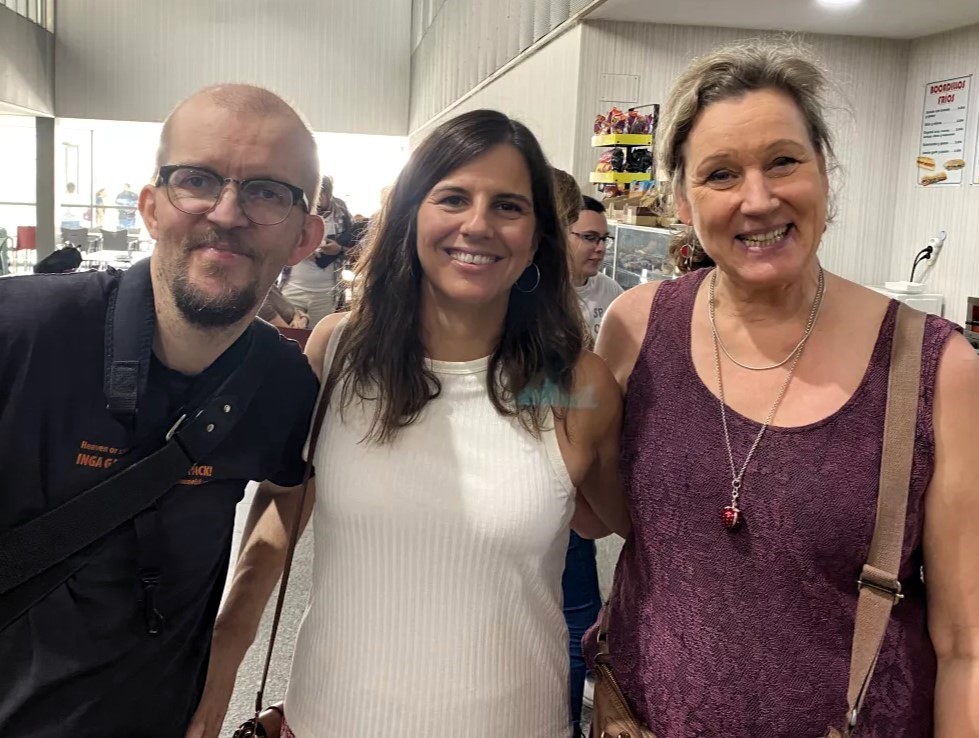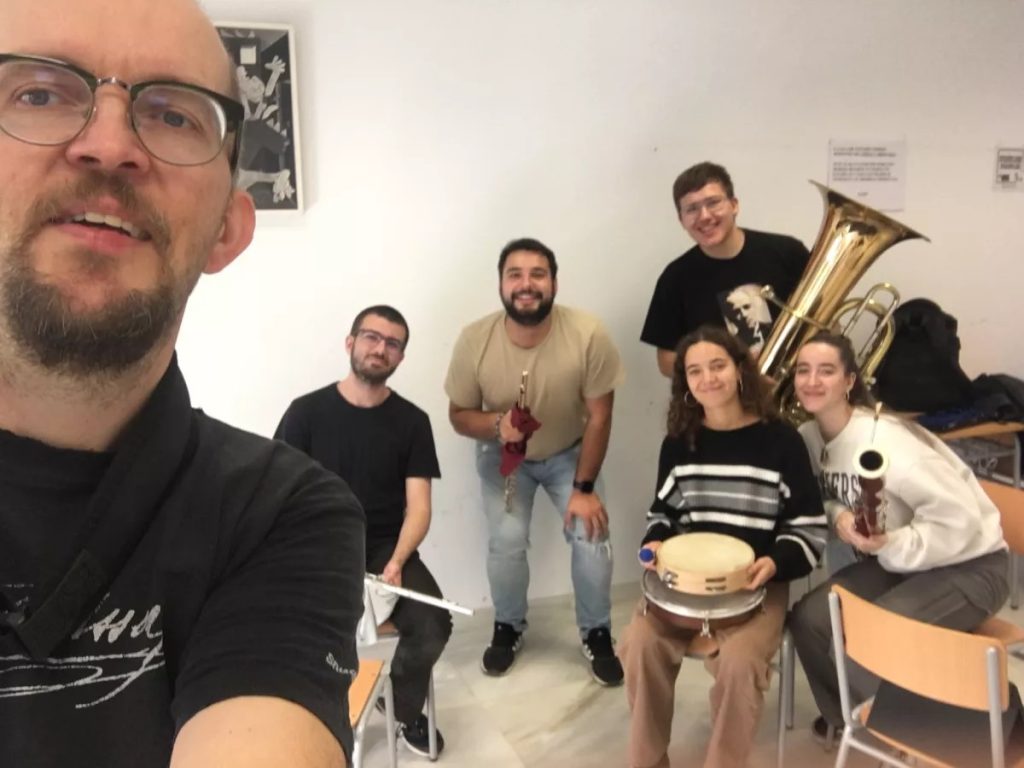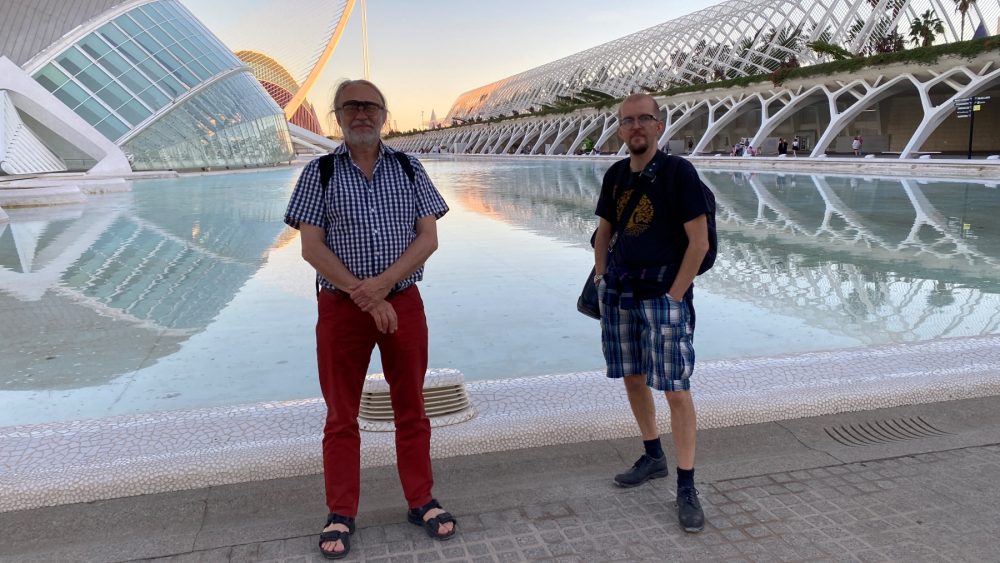Written by:
Pär Moberg, Senior lecturer in Folk and World music, Malmö Academy of Music
In November 2023, I visited the Conservatorio Superior de Música Joaquín Rodrigo in Valencia, a Spanish city on the Mediterranean coast. As well as being the home of the renowned architect Calatrava (known in Malmö for the Turning Torso), the city turned out to be the centre of a region with a very strong brass band tradition. Every municipality worth its salt has one, often two, brass bands. That means there are a lot of talented brass students. Good for me as a saxophonist!
The international coordinator in Valencia is a Swedish-speaking Spaniard who has lived in Sweden for several years and who has also translated Strindberg into Spanish. He is very enthusiastic about exchanges with Sweden, so there is now a lot of interaction between our institutions. Our professor of organ, Hans Hellsten, was there in 2022, one of their students is currently on exchange with us, and this time we were actually two teachers from Malmö who came to Valencia at the same time: myself and Lena Ekman Frisk, a lecturer in choral singing.
The Erasmus system we were travelling with encourages ‘green mobility’ and for me it was an obvious choice to take the train. Lena and her husband Per, who also came along, were not late to join. When the journey takes two days with an overnight stay in Paris, it is nice to have travelling companions.

Spectacular Experiences
The strongest impression of Valencia will probably be the spectacular modernist architecture of the Ciutat De Les Arts in Les Ciéncies, where most of the buildings were designed by Calatrava. The buildings were located in the long park that we passed every day on our way to the Conservatorio Superior de Música Joaquín Rodrigo. They are really fascinating to see, although the locals had their opinions that they were an expensive political theatre.
Spectacular in another way was the long park that winds through much of the city centre. It was originally the site of a river, but when it caused severe flooding in the 1950s, it was decided to move it out of the city centre. Today, the riverbed is a park, and a very beautiful and popular one, both for tourists and locals. One might have reservations about such a violent intervention in the landscape, but the park clearly fulfils an important function in the city as a green breathing space.
The Impact of International Exchanges
Exchanges have been a common thread in both my own studies and teaching. The Nordic and Baltic conservatoires that offer programmes in folk and world music have a common network within Nordplus called Nordtrad, where we get together with teachers and students for an intensive week every year. Through Nordtrad I have built up an extensive network of colleagues in the genre throughout the region. In recent years we have also started a smaller ‘Öresund Folk Music Network’, which includes the Malmö Academy of Music together with the Esbjerg Academy of Music and two folk high schools in Sweden and Denmark. We also meet once a year.
International exchanges give me great job satisfaction and new experiences and perspectives that I can use in my teaching. Besides, it is not very difficult, especially with Nordplus. Erasmus exchanges require a bit more paperwork, but the school staff will help you.
You don’t need to have an established contact before you go, although it will make things easier, but if you are interested in visiting a particular university, I recommend that you contact their international coordinator and register your interest. A good first step might be to contact a school that you know your home faculty already works with, for example on exchange students, then there will already be established channels. But be sure to take the train! Flying emits an outrageous amount of greenhouse gases, and travelling by train is a fun part of the experience!


